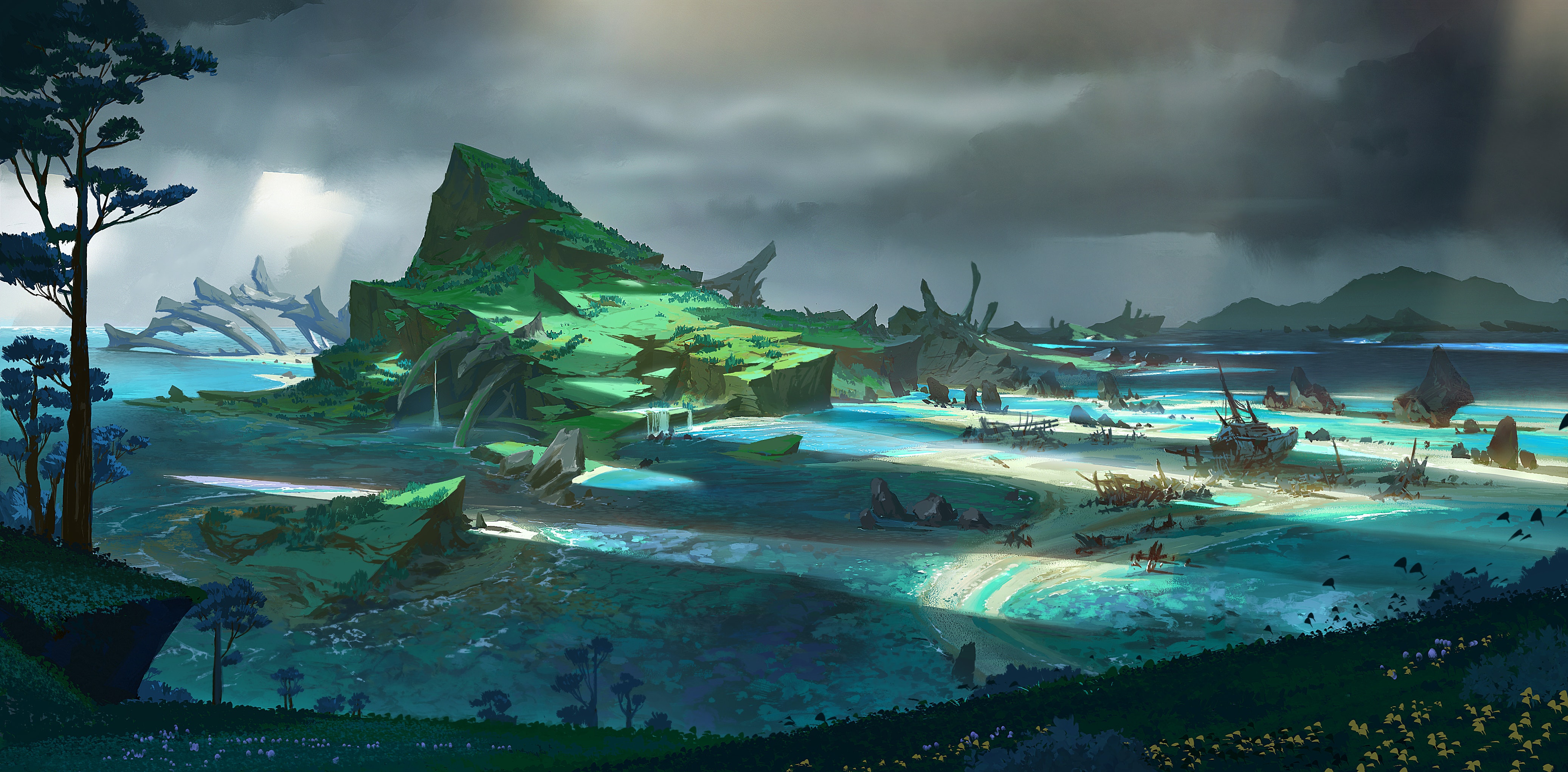
The Joyan Shogunate Description: Joya rose from the ashes after many civil wars several thousand years ago; the most prominent clans seized absolute power and unified Joya as one. Many people come to Joya for its known mysterious and beautiful landscapes, a land of mountains and rivers. Once there, many can describe a "tense", "dangerous" atmosphere, depending on where in Joya one travels. That is all due to the large treatment differences between commoners and the elite, with the Daimyo's subordinates who had higher status than the common folk. Away from the capital, Joya is filled with mysterious lands across its' Country. Many locations have stories of their own from the famous Tanuki Forest, dedicated to the Tanuki's and other lesser Yokai in Kokomi Bay, a land with large shells and floating bubbles surrounding the area. Many of the Kami laid claim to some of these locations, with some Shrines erected while as others stood abandoned, forgotten as the ages passed. Some historical Shrines even belong to Demi-Kami's whom put their prints in history themselves, both horrible and greatness. Localization: Joya is located central to the continent of Ishgar. It shares a land border with Stella and Iceberg to the North, Minstrel to the west, and Desierto to the south. Politics: Legally, the shogunate was under the control of the emperor, and the Shōgun’s authority was limited to control of the military forces of the country, but the increasingly feudal character of Joyan society empowered the military Samurai class, giving them de facto control over the country with the the Emperor remaining in his palace. The current Shōgun and first woman in her station, Oda Ayame, challenged the status quo, effectively wresting even this measure of control from the Emperor, establishing the Shogunate as the supreme authority in Joya. Ayame bought the loyalty and respect of the Samurai and the various elites, while oppressing the people who would oppose her. The Shogunate, once responsible for protecting the country and the emperor for foreign invaders, now seized complete control of the country. Loyalist Daimyo's were given back control of their lands, where they could freely make use of the local populace as they saw fit. The Shogunate is now seen as a government that stands only for the previleges of the elite, without the slightest concern for the people. The Joyan word Daimyo is compounded from dai (“large”) and myō (meaning “private land”). They are rulers of estates varying in size, as the heads of powerful Samurai families. Daimyo's often have Shinobi as their spymaster—and especially revered and high-ranking relatives or retainer Samurai as their right-hand. The chief duty of the right-hand is to command the peasant conscripts should war break out. In most cases, the Daimyo fulfills the diplomatic role of this trifecta. Rebellious Daimyos that don't adhere to the Shōgun are ordered to have their leader commit seppuku (suicide), or risk facing the entire Shōgunate and their loyalists. Infighting among the Daimyo is a normal occurrence; and tolerared unless it threatens the position of the Shōgun. All clans play this political game against one another, and none excel at it as the Oda clan and its current head, the Shōgun herself. Stella, Dieserto & Iceberg, neighbors of Joya, have expressed concerns over the current Shōgun and Joya's militaristic posture has earned them few friends abroad. Her decree and words are law, no matter what. Joya is a reluctant member of the Magic Council, however no Guilds are allowed to operate in the country, and Rune Knights are only tolerated on highly specific circumstances. Economy: As an Isolationist country, Joya is entirely self-sufficient requiring only certain materials to be exported which are commonly traded for between their neighbors. As a consequence of this insular mindset, a noticeable percentage of the Joya people are farmers and fishers. Dedicated perfectionists in their craftsmanship, the Joyan people frequently turn even the simplest of professions into an artform, and their blades in particular are known for having the sharpest edges in the entire continent. Culture: Joya is a Country filled with superstitions and tales of horror or Fortune. People in Joya fear many things that other Countries think nothing of, such as specific numbers, actions towards things and towards the dead. Among older generations, the status of women is especially low, and the idea of danson-johi (“respect for the male, contempt for the female”) is prevalent, unless you were the Shogun themselves or someone of great importance. Symbolizing their dominance of society by force of arms, samurai wore two swords; by law, the other classes are forbidden to wear them, thus carrying the policies of Oda to their logical conclusion. Concern for strict status differentiation is evident even in family relationships, as absolute obedience is demanded from members of the family toward the house head (kachō). For respect, people bow their heads and do not give eye contact to those in higher status, rather it's greeting, sending off or giving a gift. Respect and honour are paramount, and people are expected to live and die for it: Honor, respect and hard work define life in Joya, that was till the new Shogun took place, taking over all Joya decades ago who still sits in the seat of ruler. Many worship the shrines that are rested in their respected locations, the Golden Tree of Tranquility and Peace and the Grand Kami Shrine are where most Shinto believers go to pay respects during hardships and festivals that are held for them. Religion: The People of Joya believe in Shinto which is a polytheist and animistic religion with most of its origins being lost to the sands of time being established many millennia ago. This religion focuses on supernatural entities known as Kami, the Gods and spirits. The Kami are believed to inhabit everything, including forces of nature and significant historical locations and beings. Some mortals are said to be blessed by the Kami in some manner: Often colloquially referred to as Demi-Kami by outsiders, some of them become known and worshipped in their own right. They are extremely rare though as few Kami approve of this act unless allowed by the Heavenly Empress herself. Influenced by Bellan faith, many in Joya believe in reincarnation, while more traditional belief focuses on the Heavenly Palace where the Kami reside. The kami are worshiped at shrines which are staffed by Shrine Maidens who help with cleansing and rituals, and Priests, known as kannushi, who oversee offerings of food and drink to the specific kami enshrined at that location. This is done to cultivate harmony between humans and kami and to receive the latter's blessing. Other common rituals include the kagura dances, rites of passage, and seasonal festivals. Language: The country's official Language is Joyan, sharing cultural roots with Sinese from immigrations millennia ago. Over time it has been influenced by their neighbors incorporating words into their vernacular making basic conversation. Locations
|

 Home
Home












